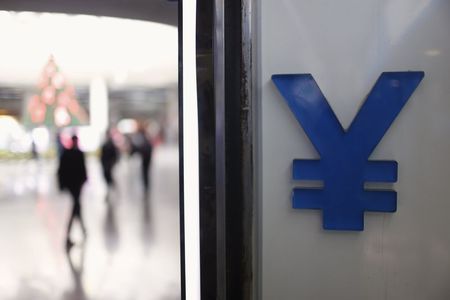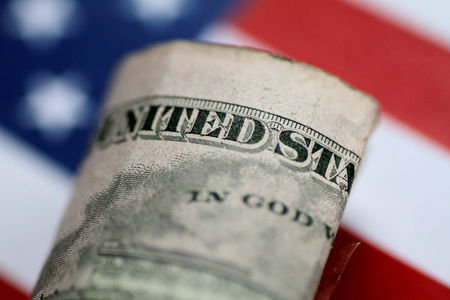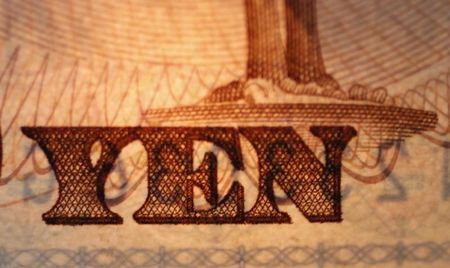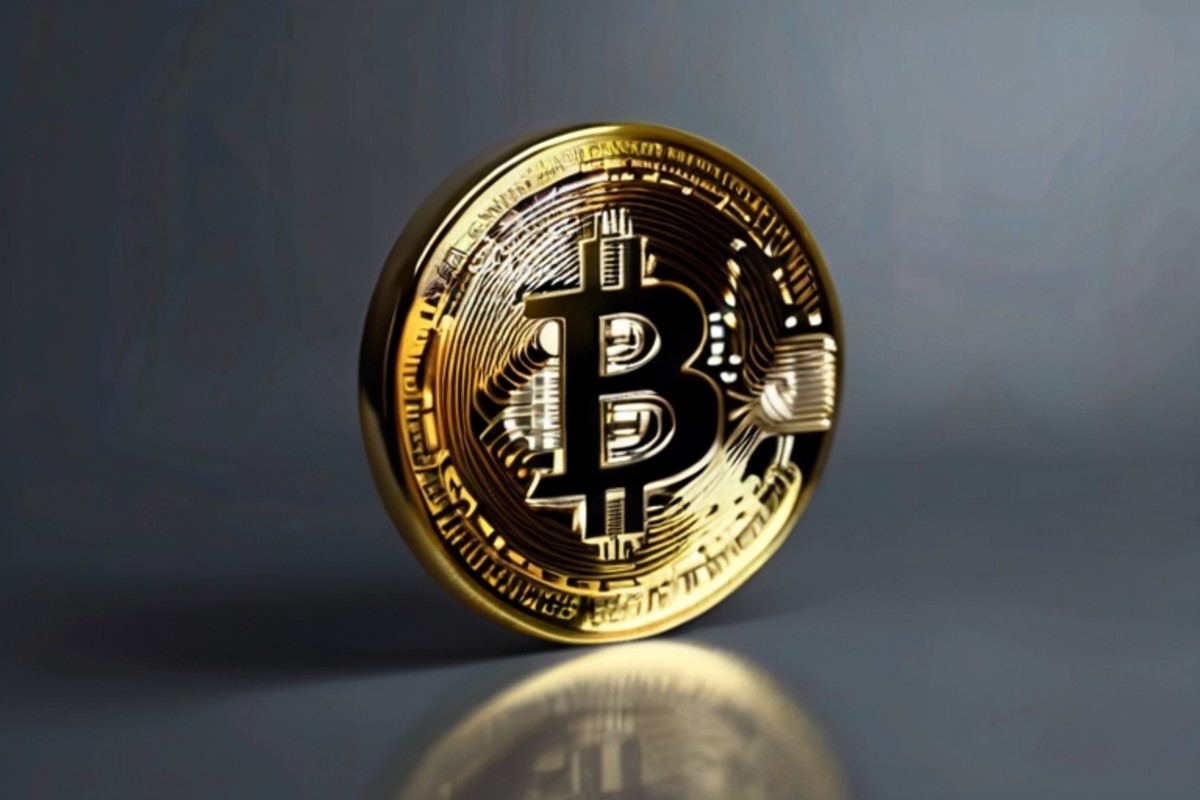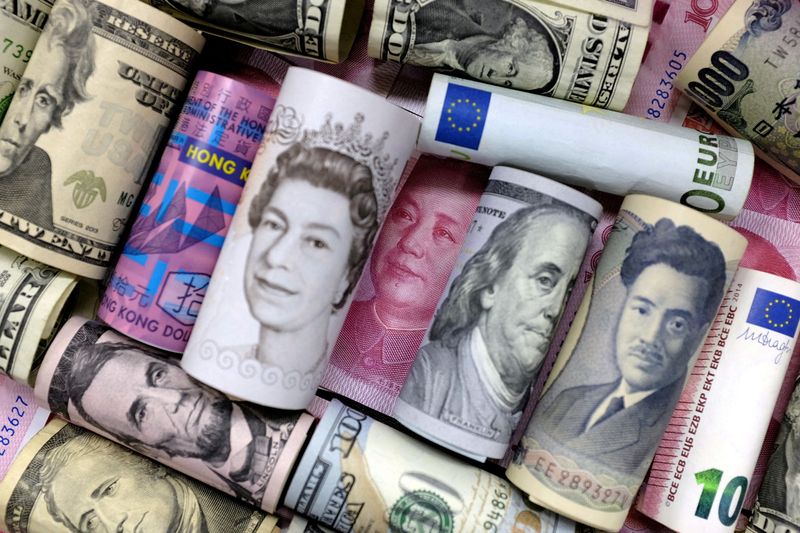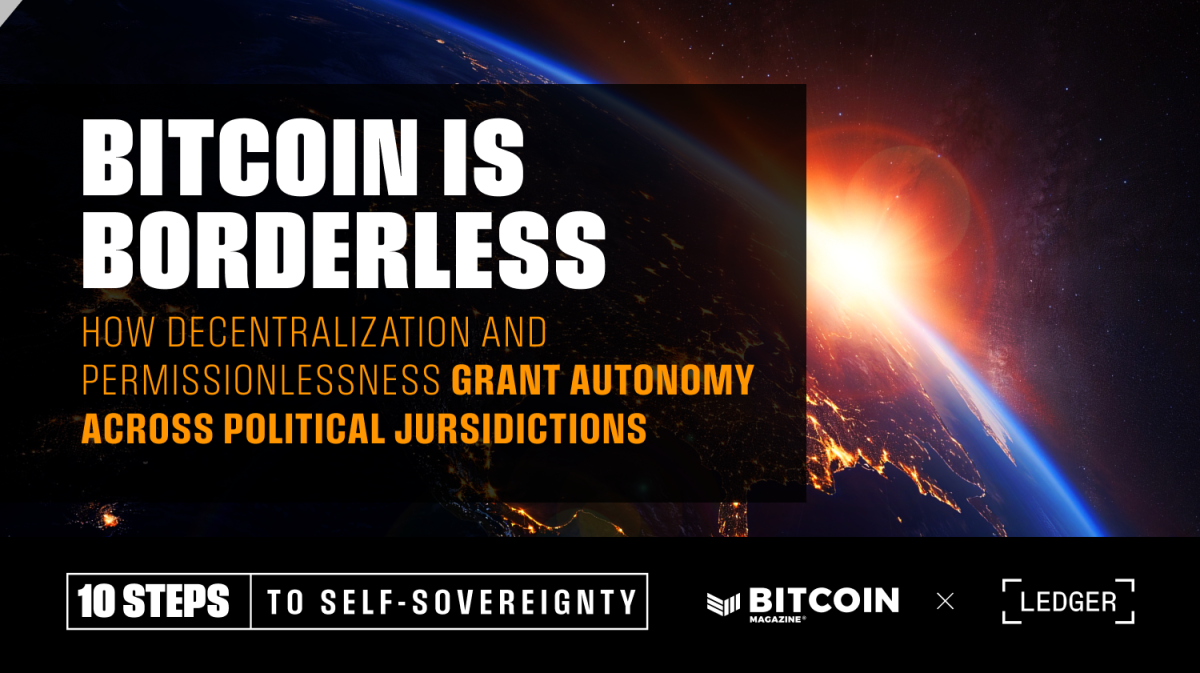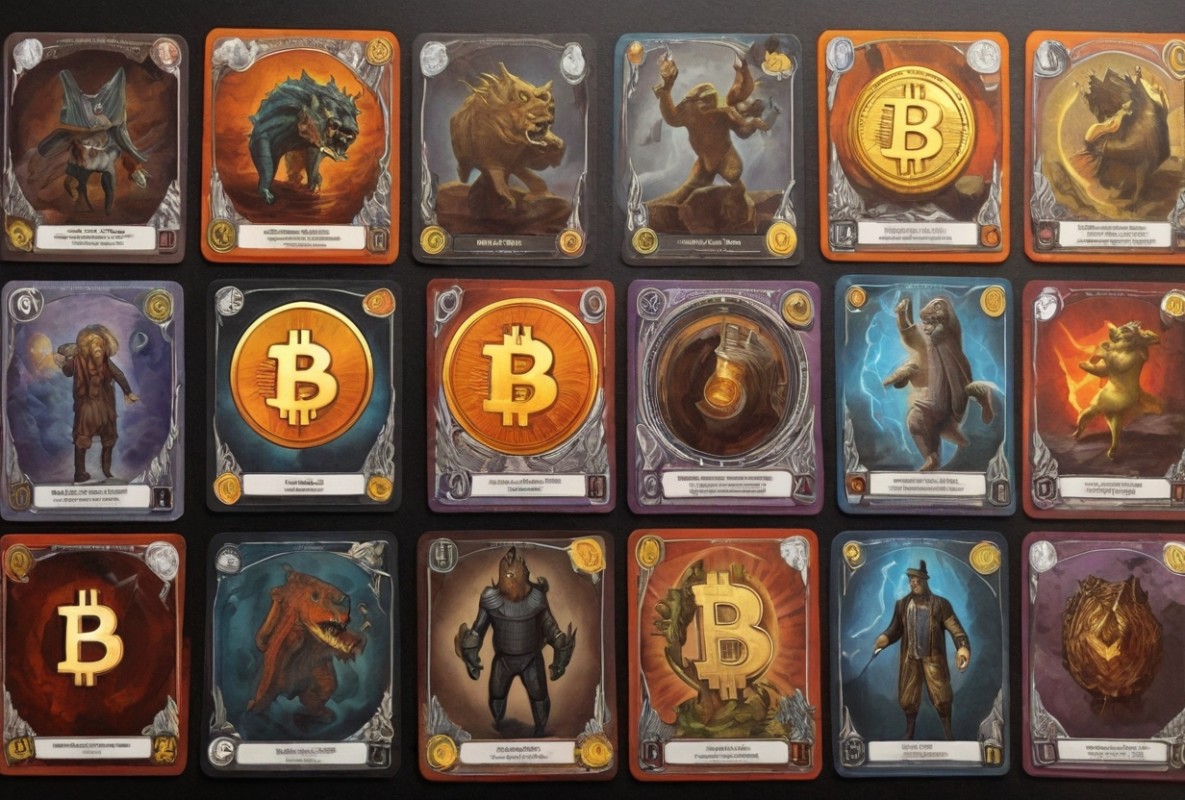Month: April 2024
UBS raises USD/JPY forecast amid strong dollar
Post Content
BofA anticipates rise in USD/CNY, bearish on Asian currencies
Post Content
Blackrock Bitcoin ETF Enters Top 10 for Longest Inflows
BlackRock’s Bitcoin ETF, IBIT, is now one of the top 10 ETFs of all-time, at least when it comes to maintaining its streak of daily investment inflows.
As of Tuesday, April 23, IBIT has seen 70 days of inflows, meaning that the fund has seen a positive increase in its total holdings of the underlying asset, in this case spot Bitcoin. IBIT has yet to see a day of outflows, in which its holdings have declined.
This milestone comes after a series of US Spot Bitcoin ETF approvals earlier this year, which have proven to be hugely successful.
Since their launch, US Bitcoin ETFs have crossed an impressive $200 billion in total cumulative volume, demonstrating the high demand for Bitcoin among investors.
BlackRock’s CEO, Larry Fink, has notably changed his stance on Bitcoin recently. The company now holds more than 270,000 bitcoins, worth over $18 billion, solidifying its position as a major player in Bitcoin ETFs. This shift in attitude from one of the world’s largest asset managers is a testament to the growing mainstream acceptance of Bitcoin as a legitimate investment asset.
Click the image to learn more.
This comes after Eric Balchunas, a senior ETF analyst at Bloomberg tweet yesterday, “$IBIT inflow streak currently at 69 DAYS. one more day and it moves into Top 10 and ties $JETS.”
This achievement highlights the consistent demand for IBIT and its ability to attract a steady stream of investment.
The success of IBIT and other US Spot Bitcoin ETFs sends a positive signal to other countries and traditional investors, demonstrating the high demand for Bitcoin investment products.
The increasing involvement of major institutional players like BlackRock is a clear indication that Bitcoin is here to stay and will play an increasingly important role in the global financial landscape.
Dollar calm ahead of week’s key data; euro gains after PMI release
Post Content
Asia FX muted before more rate cues; yen shrugs off intervention fears
Post Content
Reynolds Foundation Donates $1 Million To Fund Bitcoin And Open-source Projects
OpenSats, a non-profit organization that supports the development of free and open-source software and projects focusing on Bitcoin, announced today that it has received a $1,000,000 donation from The Reynolds Foundation.
OPENSATS RECEIVES $1,000,000 DONATION FROM REYNOLDS FOUNDATION
The Reynolds Foundation is supporting OpenSats with a generous $1M donation, noting that they “warmly invite fellow philanthropists to join [them] in supporting this groundbreaking endeavor.”https://t.co/NdcBcvc5rQ
— OpenSats (@OpenSats) April 22, 2024
“As new supporters of OpenSats, we are deeply appreciative of the opportunity to engage with a community that exemplifies transparency, professionalism, and inclusivity, all while championing the acceleration of freedom,” said Dr. Álvaro Salas-Castro, Reynolds Foundation President & CEO. “We firmly believe that the process is just as crucial, if not more so, than the outcome. OpenSats stands as a testament to the power of both. Our organization embraces a shared mantra of joyful optimism paired with a pragmatic approach: Togetherness. This ethos, cultivated by the Reynolds Foundation under the visionary leadership of our founder, Tim Reynolds, embodies our commitment to freedom and scalability.”
The donation from the Reynolds Foundation will be dedicated entirely to supporting open-source projects and contributors working on freedom tech. Since OpenSats’ operational budget is funded separately, it allows them to dedicate 100% of donations to funding open-source initiatives, the announcement stated.
OpenSats also encouraged fellow philanthropists to join their mission and contribute to funding open-source Bitcoin development. Individuals and organizations aligned with OpenSats’ mission are also invited to apply for grants here, per the announcement.
These funding opportunities allow passionate contributors working on Bitcoin and freedom tech to access the resources they need to support their projects.
“We warmly invite fellow philanthropists to join us in supporting this groundbreaking endeavor, OpenSats,” Salas-Castro continued. “Their work ensures that our collective efforts significantly impact the community we are dedicated to serving. Together, we can fix the money to fix the world.”
Dollar touches new 34-year peak vs yen on US rate outlook
Post Content
Citi predicts continued GBP weakness amid dovish BoE signals
Post Content
Bitcoin is Borderless: How Decentralization and Permissionlessness Grant Autonomy Across Political Jursidictions
Bitcoin is an ephemeral digital currency. It doesn’t have a physical address, or a specific place you can track it down. It’s everywhere. This is what gives Bitcoin its superpowers, what makes it a truly decentralized and globally accessible monetary network. Your bitcoin isn’t stored in your wallet but at Bitcoin addresses recorded by every computer running a Bitcoin node all over the world. Your wallet simply stores the private keys that allow you to control bitcoin at those addresses.
That means that your Bitcoin can be accessed from anywhere in the world. In this way, Bitcoin gives you superpowers as well. You can “take” your Bitcoin with you wherever you go. All you need to do is bring your private keys with you, and it is accessible and spendable from any point on the planet where you can access the internet.
This can wind up being one of the most valuable and important abilities in a world that is becoming increasingly politically and economically unstable. Every day hundreds of thousands of people for one reason or another are picking up everything they can carry and leaving their home country for somewhere else. Somewhere that is safer, somewhere with more economic security and opportunities, somewhere they will not be persecuted for political or religious reasons.
The problem with doing this, is inevitably you have to cross a border. Generally, that means, except in the most extreme circumstances, dealing with customs agents employed by your government. Governments worldwide place extreme restrictions on financial assets, money, and other valuables you may cross the border with. They don’t like when people try to remove monetary goods from their local economy without permission.
Attempting to flee your country for your own safety or to attain better opportunities is greatly complicated by this reality. In many cases, it means having to leave behind savings, valuables or anything the government would not allow you to bring with you when leaving.
Bitcoin is the answer to this problem.
Why Bitcoin is So Effective at Crossing Borders
Your Bitcoin is accessible from everywhere in the world, you just need to keep your private keys with you. And typically, wallets allow you to restore your private keys using a 12-24 word seed phrase. Carrying 12-24 words with you is infinitely easier than a bundle of cash, or large amounts of gold or jewelry. Traditional assets are bulky, physical, and identifiable.
Bitcoin is Permissionless
Bitcoin is permissionless, as the ability for network participants to join and leave the network at will is not mediated by a centralized party. The agency of individuals to participate is solely at their discretion. By virtue of existing outside of the traditional banking and financial system, Bitcoin’s supranational qualities make it uniquely fit for entering and exiting national jurisdictions.
Pseudonymity is a key component of Bitcon’s permissionless nature. By possessing a private key to sign transactions, individuals can access and control their wealth regardless of their relationship with their country of residence. While there are caveats in that individuals incur risk in transgressing regulation, and must take responsibility to protect their privacy (for example, running a node can help protect your privacy when interacting with the Bitcoin network).
Bitcoin is Decentralized
Enabling Bitcoin’s permissionlessness is its decentralization. With a globally distributed network of miners and validating nodes, the Bitcoin ledger has amassed resilience to control by centralized entities including companies and governments.
The central enabling constraint of Bitcoin as a money – its 21 million supply cap – is also a key factor in its suitability for individuals to retain wealth between national jurisdictions. While the public-private key architecture of the network is of course beneficial, it would be much less impactful (and likely obsolete) if it were not for the fact that Bitcoin’s sound monetary policy enables wealth to be stored for an indefinite period of time.
By existing on computers around the world across political jurisdictions, and continually utilizing proof-of-work consensus to ensure the integrity of the ledger every 10 minutes, both access and fidelity of one’s wealth can be retained over time.
The Security of Cryptography
Access to and security of private keys are another critical aspect when it comes to transcending national borders. Bitcoin private keys are typically 256-bit numbers, meaning that the probability of guessing a private key – known as a “brute force” method – is statistically incredibly unlikely. So unlikely, in fact, that you are more likely to select a specific atom from all that currently exist in the universe than you are to randomly guess a bitcoin private key.
It should be noted that this security relies on an unproven (and debatably unprovable) assumption that P!=NP, which is the basis for cryptographic security in general. Nuances aside, the cryptographic nature of Bitcoin private keys provides a nearly impenetrable bulwark against confiscation – another essential component that makes Bitcoin a useful tool for transcending international borders.
Wrapping Up
Traditional mechanisms for storing and transferring wealth – gold, fiat currency, commodities and even art – can achieve their stated outcomes, but fall short of providing an efficient, secure and reliable means of doing so. Bitcoin, as the first truly decentralized instance of digital cash, surpasses its competitors in providing permissionless access and financial freedom to its users.
When it comes to crossing borders, and existing without the auspices of governmental authorities, the cryptographic, sound and immutable qualities of Satoshi Nakamoto’s invention are a step-change in how individuals can express their agency and autonomy. While each of Bitcoin’s fundamental qualities on their own are indeed useful, in combination, they offer an increasingly unstoppable means for self-sovereignty that puts individuals back in control of their wealth.
Hopefully now, if you didn’t already, you can understand the immense power that Bitcoin offers people in protecting and maintaining control of their money in even the worst of circumstances someone can find themselves in. It truly is a superpower.
A Rant Against Ordinals
On Free Speech
President of Bitcoin Magazine, Mike Germano, has dared me to publish this rant with the following meme:
Source: https://x.com/mikegermano/status/1773003239312503243?s=20
To all the haters, yes, even in Bitcoin Magazine can free debate flourish. I’m grateful for the opportunity to submit a dissenting opinion about Ordinals. With technical editor Shinobi at the helm, writers’ contributions are permissionless!
On Technical Feats
I appreciate Bitcoin Magazine editor Pete Rizzo’s posts detailing all of Bitcoin’s history, but he is morally wrong on Ordinals, just as he was on the Ethereum Merge:
Source: https://x.com/pete_rizzo_/status/1570383464360251398?s=20
While the Merge was a great technical feat for Ethereum, the switch to Proof of Stake only made it even less decentralized. And with Casey’s technical feat of Ordinals, he also hurts Bitcoin by making it less fungible.
On Peter McCormack’s What Bitcoin Did podcast, Pete Rizzo argued that “in the worst case, people who own ordinals at least own some bitcoin.”
No. The worst case is that people realize they’ve been scammed and never want to touch Bitcoin again.
On Making Money
Some try to defend that flipping Ordinals for profit is not a scam, but simply people willingly gambling on speculation. Likewise, many people bought bitcoin at the cycle top in 2021 without having done any research, and haven’t touched Bitcoin since realizing losses. Speculators buy Ordinals for the same reason they buy bitcoin: to make money.
However, on this issue, the position of Bitcoin Maxis is clear:
Bitcoin is not an intangible asset that suffers from the same Greater Fool Theory as Ordinals. Two meaningful ways saving in Bitcoin contrasts with gambling on Ordinals are network effects and actual limited supply. Many copycat altcoins have been issued, but none have the network effects of the OG. Additionally, most altcoins get dropped out of the air via Proof-of-Stake, with little physical cost to greater issuance. Bitcoin is only issued via Proof-of-Work, putting real weight and staying power behind its value.
Bitcoin Maxis who are here to fix the money, know that we don’t buy Bitcoin to make money, but to fix the world.
On Rare Collections
On What Bitcoin Did, McCormack makes the case that no one is buying Ordinals to actually collect. Some Ordinals supporters have deluded themselves to the point that they think while most are trying to flip, some are actually collecting. Esteemed art auction house Sotheby’s held an auction in January 2024 for ordinals, but putting their brand behind this “collection” doesn’t make it so.
https://www.sothebys.com/en/buy/auction/2024/natively-digital-an-ordinals-curated-sale
I concede that whether or not I am morally opposed doesn’t change the fact that there are people who find value in collecting worthless things. Some may argue that Sotheby’s isn’t scamming anyone if they are a willing buyer for digital art. However, it is a scam because they’re not buying digital art since they don’t actually own anything. I can add the same digital art to any transaction. It’s only with their shared delusion that by using the ordinal protocol, same as their peers, the digital art they own in their transaction is more valued than the digital art in mine.
What I will NOT concede is the notion that ordinals and NFTs are unarbitrary—they are. I can take the jpeg of every Quantum Cat, and re-release the same 3000 cat collection, and tell people mine don’t cost 0.1 bitcoin each, but only 0.0001 bitcoin each. Such cheaper. Much better deal!! There’s nothing rare or special about it. Do people want to pay Udi or Sotheby’s the 0.1 bitcoin to own the address to the Sat to the cat in their collection, or the same cat in mine? In fact, a copycat collection has already been created trying to do just that, called Quantum Rats.
Source: https://twitter.com/mononautical/status/1749981929955373546
Of course adding other collections isn’t quite as direct as diluting supply of an existing one, but it’s close enough. If a collection starts small and gets so expensive that the creators make a separate but similar collection with the purpose of making them available for more people, it’s really just to scam more people. It’s a moral judgment, but Ordinals don’t uphold the values of a Bitcoin Maximalist. Bitcoin has a finite supply of 21 million, but there’s no limit to the number of Ordinal collections that can be created. Next, Udi might release “mutant” quantum cats, or “bored” quantum cats, which become more popular and make the originals all worthless.
That’s the scam. That’s the rug pull.
The rug pull formula is simple: Start a “rare” collection, hype it up with wash trading with yourself and influencers, then leave a sucker holding the bag.
Then do it again, and again, and again.
Bitcoin could succumb to “greater fool theory” too, but the difference is the network effect that has made Bitcoin survive unlike any other pump and dump crypto.
On Digital Art Ownership
On the contrary, owning digital art does exist — intellectual property exists. I can pay for a cover art design, so I own the art for Bitcoin Girl: Save the World. I own the files and I make the merch. If anyone tries to sell physical merchandise with digital art I own, then it’s copyright infringement.
Source: https://www.amazon.com/Bitcoin-Girl-Save-World-Dog/dp/B0BS8XB72K/Source: https://www.realbitcoindogmerch.com/
Think about all the digital files or character art for every video game or Pixar animated movie. Digital art rights exist, they are real, and they can be used to make new movies or products.
On Filtering and Censorship
I’m not trying to filter out ordinals or censor transactions, but I think supporting ordinals is wrong. For Bitcoin to succeed, it needs to be money for enemies. However, Bitcoin Maxis should still champion for people to do their own research.
Scammers are always going to scam but I’m not going to support it. I’ll still allow it, though thankfully ordinals don’t need my permission anyways.
I’m not trying to break Bitcoin by adding filtering or censorship, but I can still be opposed.
Hodlonaut put my position on ordinals succinctly:
Source: https://twitter.com/hodlonaut/status/1751677477762617595?s=46&t=AJLfWYMcFR4tAoyfIomXHw
Thank you Bitcoin Magazine for letting me rant against ordinals!
This is a guest post by Will Schoellkopf. Opinions expressed are entirely their own and do not necessarily reflect those of BTC Inc or Bitcoin Magazine.
